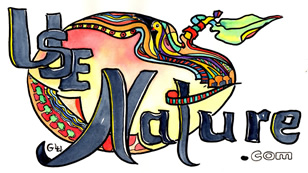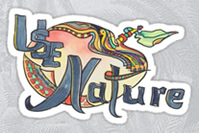useNature.com ... Anti Oxidants and Nutritional Supplements
Anti Oxidant and Supplements
Natural Health Lifestyle Online Magazine
Holistic Health & Lifestyle Information
Article: Antioxidants and Nutritional Supplements
What are Anti Oxidants?
..... by Dieter Luske N.D.-D.C.H.-D.M.H.-D.H
Holistic Therapy Consultant - Gold Coast - Canungra
What are Anti Oxidants?
The term "antioxidant" refers to the activity inherent by numerous vitamins, minerals and other phytochemicals to serve as protection against the damaging effects of highly reactive molecules known as free radicals.
Free radicals have the ability to chemically react with, and damage, many structures in the body. Particularly susceptible to oxidative damage are the cell membranes of virtually all cells and the very source of our genetic material - DNA. (Free radicals scavengers)
Free radical reactions and oxidative damage have been linked to ageing in general and many of the diseases related to aging such as heart disease and cancer.
Do we get enough Antioxidants from our Diet?
A seemingly healthy lifestyle with maintenance of recommended daily values of anti oxidants, like vitamins C and E, is "No Guarantee" for an appropriate individual supply; unless the degree of oxidative damage is taken into account, eg; smoking, drinking, stress, environmental toxins, inflammation and many other factors.
This is one of the reason, why it may not be possible to get the right amounts of Antioxidants from your diet.
Unfortunately in our times and life, we can't escape the influx of pollution, chemicals, stress, bad or contaminated food quality, and supplementing becomes a valuable natural form of combating this negative effects of free radicals to our systems.
Nutritional Supplements
What are antioxidant vitamins?
Much research has focused on how antioxidant vitamins may help health in general.
Antioxidant vitamins - E, C and beta carotene (a form of vitamin A) - have potential health-promoting properties.
We do recommend that people eat a variety of foods daily from all the basic food groups:
-
Plenty of vegetables and fruits
-
Protein in the form of fish, lean meat, poultry - if possible organic
-
Some whole grain breads, cereals, and starchy vegetables
Eating a variety of foods low in saturated fat and high in un-saturated fat, will provide a rich natural source of these vitamins, minerals and fiber.
The 4 key nutritional antioxidants, vitamins C and E, beta-carotene and selenium, are widely available as dietary supplements, well studied and relatively inexpensive.
Some of the more popular antioxidant nutrients found in commercial dietary supplements also include Zinc, Copper, Ginkgo biloba, Grapeseed extract , Pine bark extract, Lycopene, Lutein , Quercetin, and Alpha lipoic acid as well as dozens of others.
What are Free Radicals
Over the last several decades, scientists have discovered that the body's formation of unstable oxygen molecules called free radicals is unavoidable--every cell produces tens of thousands of them each day.
We're also exposed to free radicals in the environment on a daily basis. Cigarette smoke, for instance, is one of the most concentrated sources of free radicals and pollution in general, including food contaminated with herbicides and other chemicals introduced in the growing circle of animal or plant based food sources....
...... another reason we do recommend organic grown food.
Left unchecked, free radicals can cause extensive cell damage and contribute to a whole list of chronic diseases.
Luckily, the body does have a defence system against these "oxidant" compounds: antioxidants.
Antioxidants literally "mop up" free radicals.
Antioxidants produced by the body itself; include glutathione, alpha-lipoic acid, and coenzyme Q 10 .
Antioxidants in the form of dietary supplements have been available for years, and while they can't substitute for a healthy diet and lifestyle, they can play a role in reinforcing your overall health and vitality.
Antioxidant supplements are best taken in the form of combination products because multiple antioxidants appear to work together synergistically far more effectively than a single antioxidant, no matter how high the dose. In addition, some supplements, such as zinc, copper, and selenium, are necessary to actually strengthen the body's own antioxidant protection system.
Most antioxidant combinations contain a standard ingredient base, vitamin C, vitamin E, beta-carotene, and the mineral Selenium.
Some combinations include newly discovered antioxidants, such as proanthocyanidins (flavonoids found in grape seed extract, pine bark, and red wine), N-acetylcysteine (NAC), alpha-lipoic acid, coenzyme Q 10 , Glutathione and zinc. Others feature potent herbal antioxidants such as ginkgo biloba or green tea.
Health Benefits
When you have too few antioxidants to counteract your free radicals, damage could occur, leading to a variety of chronic degenerative diseases.
A poor diet, cigarette smoking, environmental pollutants, and ultraviolet (UV) radiation from the sun also increase the free-radical load, creating a situation known as "oxidative stress."
Antioxidants also appear to boost overall health and resilience.
How to take AntiOxidants
Take a high-potency multivitamin/mineral and a well-balanced antioxidant complex every day. It may be necessary to adjust the dosages to account for your own daily vitamin regime and lifestyle.
All of these supplement recommendations also assume you are eating a healthy balanced diet.
Take an antioxidant combination product rather than a single antioxidant supplement. The latest studies indicate that a single antioxidant at high doses will not provide the same degree of protection as a combination of antioxidants. In fact, a single antioxidant used by itself may be harmful, becoming a free radical itself. When other antioxidants are present, they all help recycle each other.
Combination products are also more convenient and less expensive than individual antioxidants.
-
Always take multivitamin/mineral and antioxidant supplements with meals.
Foods that contain a little bit of fat enhance the absorption of vitamin E and carotenoids. -
It's best to take antioxidant supplements in two doses during the day. That way, you are constantly providing your body with a fresh supply.
-
In addition to antioxidant supplements, it is important to include plenty of vegetables, fruits, and other plant foods in your diet. Many of the flavonoids are not available in supplement form, and there are probably many undiscovered beneficial compounds in plant foods.
A number of important antioxidants are found in foods:
-
Vitamin C is plentiful in fruits and vegetables, especially dark leafy greens, citrus fruits, strawberries, red peppers, kiwi, papaya, broccoli, cabbage, and cauliflower.
-
Carotenoids are found in orange fruits and vegetables and in red and dark green vegetables. Apricots, carrots, cantaloupe, sweet potatoes, and winter squash are good sources of beta-carotene.
-
Lycopene is found in tomatoes.
-
Lutein is found in dark green leafy vegetables and red peppers.
-
Alpha-carotene is found in pumpkin, carrots, yellow peppers, and winter squash.
-
Vegetable oils, nuts, seeds, wheat germ and dark leafy greens all contain vitamin E.
But it's impossible to get therapeutic amounts of the vitamin from diet alone.
For example, you'd need to eat 25 pounds of almonds or consume nearly 9 cups of canola oil to get 400 IU of vitamin E. -
Flavonoids are found in a wide array of fruits and vegetables. In particular, beets contain anthocyanidins, green tea contains polyphenols, and apples and onions contain quercetin. Other good flavonoid sources include citrus fruits, berries, and red wine.
Interaction with prescription drugs
-
People on anticoagulant drugs should talk to their doctor before taking antioxidant complexes containing more than 400 IU of vitamin E. This popular antioxidant can have an anticoagulant effect of its own when taken in higher doses. Similar with Vit C and Fish Oils.
-
Cancer patients undergoing chemotherapy should talk to their oncologist about antioxidant or any other supplementation.
Article provided by ...
the editor of Use Nature, Dieter Luske
* Disclaimer - Any general advice given in any article should not be relied upon and should not be taken as a substitute for visiting a qualified medical Doctor.
 Dieter Lüske - Editor
Dieter Lüske - Editor
N.D.-D.C.H.-D.M.H.-D.H
Editor's Articles
Holistic Designs
useNature Sticker
Naturopathy under the Microscope
Get your copy now
It happened in the seventies
An intriguing story of personal risk-taking, self-discovery and profound change.
A Memoir of Love, Colliding Worlds and a House on a Hill
An inspiring read of a life-changing escapade Down Under - Phil Brown - Arts Editor The Courier-Mail
Dieter Luske - Writer
Facebook Groups
Healing with Art
Art Studio Giselle
Creative Art Classes
all levels - all styles
individual teaching
Gold Cost - Hinterland
© 1998 - 2025 useNature.com: Australia - Dieter Luske - Writer - Creative Lifestyle Portal - Natural Holistic Health - Books & Art -
*Disclaimer: Information provided is intended for general/personal use only. It should NOt be understood as medical advice.




